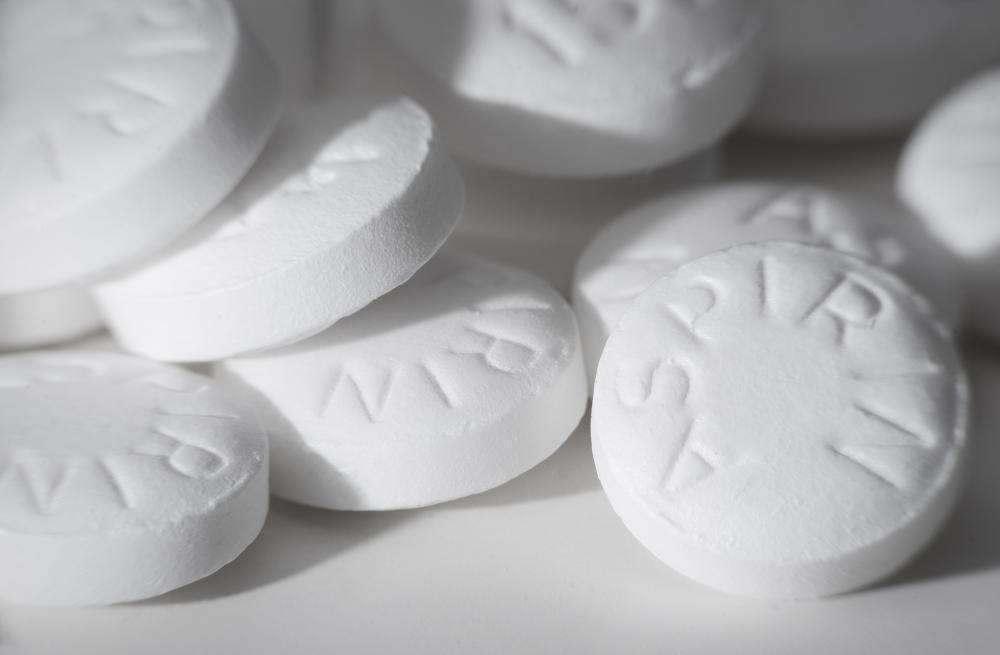At WiseGEEK, we're committed to delivering accurate, trustworthy information. Our expert-authored content is rigorously fact-checked and sourced from credible authorities. Discover how we uphold the highest standards in providing you with reliable knowledge.
What Is Dual Antiplatelet Therapy?
Doctors regularly prescribe antiplatelet medication to patients with narrowings of the carotid arteries or after surgery to correct a blockage, or thrumbus. This medication is often prescribed in tandem with a recommendation to take a daily dose of aspirin, a treatment known as dual antiplatelet therapy. Though bleeding episodes due to compromised clotting ability have been known to occur in a small number of patients who undergo this regimen, scientists have proven its efficacy in preventing additional plaque buildups, which could result in a stroke.
The main risk for patients with one or more thrombus, known as carotid stenosis, is stroke. This can occur when blood flow to the brain is fatally compromised. To address these blockages, doctors often turn to a dual antiplatelet therapy. This entails daily doses of aspirin, a known blood thinner and anticoagulant, as well as a prescription anticoagulant medication. These inhibitors may be adenosine diphosphate drugs like Plavix® or Effient®, glycoproteins like ReoPro® or Aggrastat®, or an extended release drug called dipyridamole.

Many patients who undertake dual antiplatelet therapy do so in response to a major stroke or a transient ischemic attack, or mini-stroke. Taking aspirin alone will prevent just one in five subsequent strokes after that. A 2006 study published in Circulation, the journal of the American Heart Association, showed that using dual antiplatelet therapy resulted in far fewer recurrent strokes than with aspirin alone. The Harvard University Clinical Research Institute began a study in 2009 to determine the most effective duration of the therapy.

Some risks appear to be inherent with this type of antiplatelet treatment. According to a November 2010 report in the Archives of Internal Medicine, about one in 815 patients prescribed the antiplatelet drug clopidogrel, or Plavix®, were treated at an emergency room for uncontrolled bleeding, such as a bloody nose. By contrast, however, the anticoagulant drug warfarin results in about one visit to the emergency room per 274 patients.

Dual antiplatelet therapy can be undertaken proactively to prevent strokes, or in response to an episode. If a thrombus is particularly worrisome for a physician, invasive procedures might be necessary. This could include a carotid stent to repair the clogged artery or another surgery called an endarterectomy, which is an attempt to remove the troublesome plaque immediately. Dual antiplatelet therapy is regularly recommended after these invasive treatments, too, in an attempt to keep carotid stenosis to a minimum.
AS FEATURED ON:
AS FEATURED ON:
















Discuss this Article
Post your comments